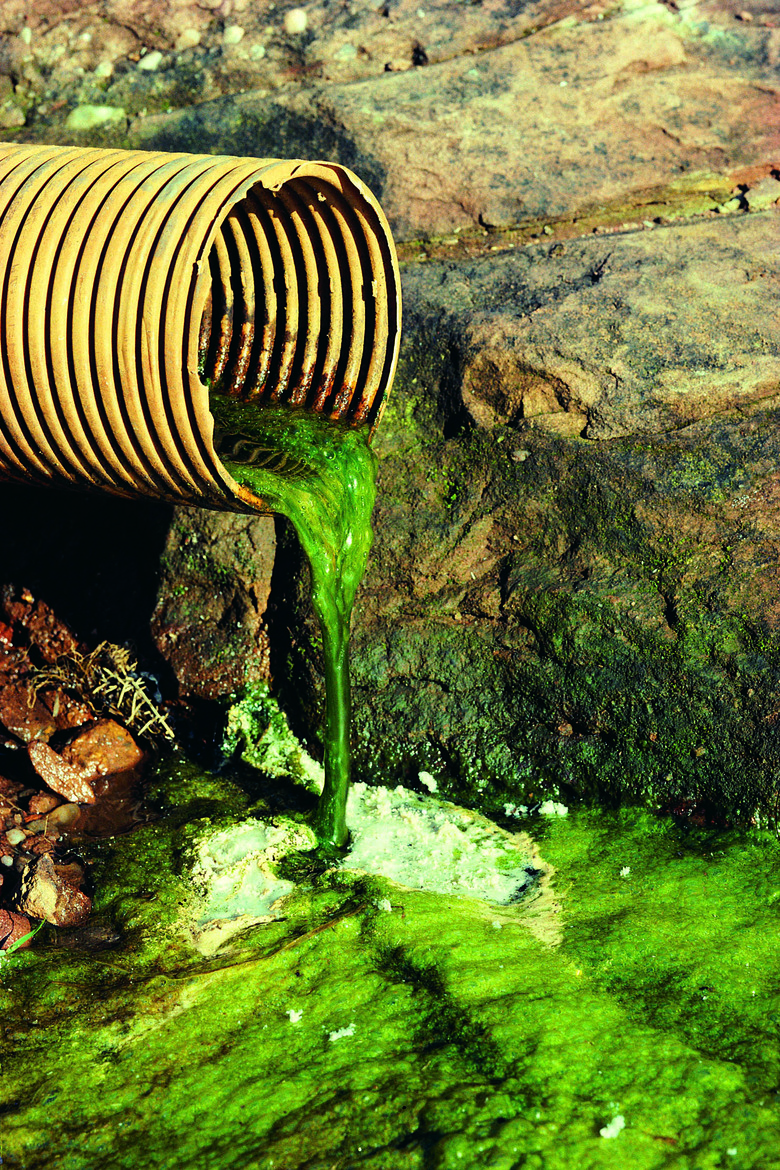Short-Term & Long-Term Effects Of Chemical Pollution
Chemical pollution presents a host of dangers to both humans and wildlife. Toxic chemical spills can cause immediate, short-term devastation to the environment and anyone exposed to the substances. However, much more insidious is the long-term effects of chemical pollution, which can harm those far away from the initial source of contamination and over a much longer period.
Direct Health Effects
Direct Health Effects
Any time toxic chemicals escape into the environment, they can pose an immediate threat to health and life. Many different types of substances can be toxic in large enough doses, so a large spill or leak could kill or injure large numbers of people. One of the most infamous examples of a large chemical leak occurred in Bhopal, India, in 1984, when 40 tons of methyl isocyanate gas leaked from a pesticide plant, blanketing the nearby town and killing more than 3,800 people.
Bioaccumulation and Toxicity
Bioaccumulation and Toxicity
Not all chemical leaks have immediate effects. However, even when an exposure occurs at a level too low to cause major harm or death, the chemical may linger in bodily fluids and tissues and build up over time. This process is called bioaccumulation, and certain substances are prone to collecting in the body and causing long-term harm. Heavy metals, such as mercury, are notorious bioaccumulators, and may work their way up the food chain. Fish may build up mercury in their flesh, and that contamination can pass to any animal or human that eats the fish. Once the levels become toxic, they can lead to chronic health problems and genetic damage.
Soil Contamination
Soil Contamination
Chemical spills on soil are associated with both short-term and long-term dangers. Anyone in the immediate area of the contamination at the time it occurs may suffer the effects of exposure, but once the chemical soaks into the soil, plants in the area may absorb it during the normal growth process. In this way, a chemical spill near fertile land could contaminate crops and spread the pollution through anyone who consumes them.
Water Table Contamination
Water Table Contamination
Another long-term danger of chemical pollution is contamination of the water table. If chemicals soak through the soil and enter underground aquifers, the natural movement of water through the water table can spread them over an extremely large area. Furthermore, since water tends to move slowly through these underground systems, the true effects of a chemical spill may remain undetected for some time, and can be very difficult to trace back to the source once discovered. For this reason, the Environmental Protection Agency maintains its Superfund program to identify, isolate and clean up toxic sites before the contamination can spread throughout the region.
Cite This Article
MLA
Kazmeyer, Milton. "Short-Term & Long-Term Effects Of Chemical Pollution" sciencing.com, https://www.sciencing.com/shortterm-longterm-effects-chemical-pollution-23662/. 24 April 2017.
APA
Kazmeyer, Milton. (2017, April 24). Short-Term & Long-Term Effects Of Chemical Pollution. sciencing.com. Retrieved from https://www.sciencing.com/shortterm-longterm-effects-chemical-pollution-23662/
Chicago
Kazmeyer, Milton. Short-Term & Long-Term Effects Of Chemical Pollution last modified August 30, 2022. https://www.sciencing.com/shortterm-longterm-effects-chemical-pollution-23662/
